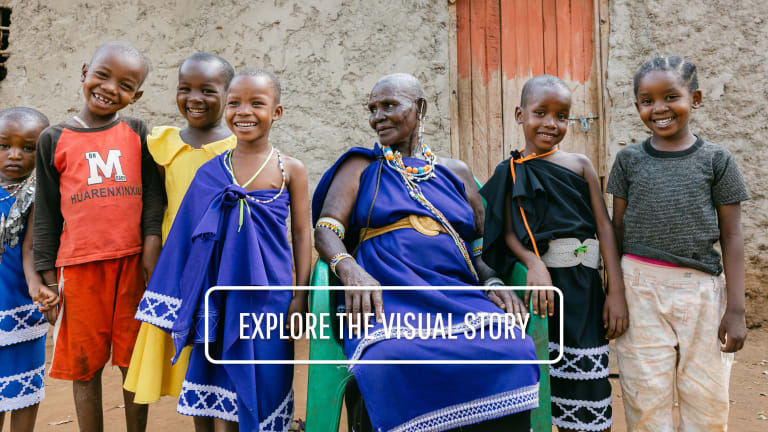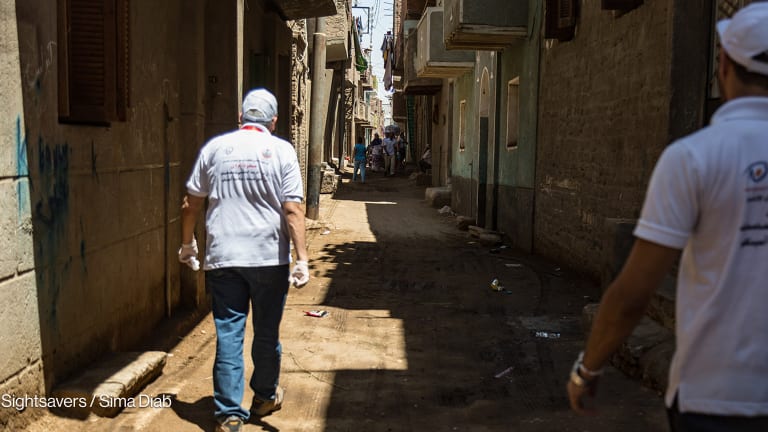
MANILA — Trachoma, an eye infection that has been the leading cause of blindness worldwide, is no longer a public health threat in Cambodia and Laos, the World Health Organization announced Tuesday.
The two countries are the first in Western Pacific’s history to have achieved elimination of trachoma as a public health problem, with validation by WHO. China did announce elimination of the disease in 2015, but the U.N. global body only put in place a formal mechanism to validate such pronouncements in 2016. WHO is currently reviewing China’s dossier and will remove it from the list of endemic countries if validated.
Mass drug administrations has been a common strategy in trachoma elimination in countries, but given the relatively low levels of reported active trachoma transmission in both Cambodia and Laos in the early 2000s, the focus of their national programs shifted to improving case detection, screening, health education, and surgery of patients affected by the disease.
A collaborative approach
The government placed ophthalmologists at national, provincial, and district levels to detect and operate on cases of patients with trichiasis, a condition commonly linked to repeated trachoma infection in which eyelashes grow inward, causing it to rub against a person’s eyeballs and scarring them. Primary health care workers, such as nurses, also underwent training to screen patients for trachoma, particularly children who are often affected by the disease. Patients with less severe conditions were given antibiotic eye treatments.
Nongovernmental organizations, meanwhile, helped train health volunteers in villages on health education messaging toward trachoma prevention, such as personal hygiene practices. Facial cleanliness is a key factor in stopping trachoma transmission, as infection is often spread from a person or fly’s contact with an infected person’s eye and nose discharge. Education ministries in both countries also allowed for such health messaging in schools.
Such inter-sectoral collaborations and partnerships, including the engagement of community health workers and leaders, and the eye health care systems the government has put in place nationally were among the key factors in the elimination of trachoma in both countries, said Rabindra Abeyasinghe, coordinator for malaria and other vector-borne and parasitic diseases at the WHO Regional Office for Western Pacific.
Like any public health milestones, however, continued provision of care, monitoring, and surveillance is needed to sustain the gains made against the disease. Trachoma elimination, as validated by WHO, means the country has shown that less than 5 percent of children ages 1 to 9 years old have shown signs of active trachoma; less than 1 percent of people over 15 years old are suffering from an advanced form of the disease and therefore require eyelid surgery; and the country’s health system has the capacity and ability to identify and manage any new cases of trichiasis.
Remaining problems
While Cambodia and Laos may have reached elimination, trachoma remains a public health problem in more than 35 countries worldwide. In 2016, 190.2 million people were at risk of going blind because of it, according to WHO.
With the temporary exception of China, trachoma remains endemic in seven other countries in the Western Pacific region: Fiji, Kiribati, Papua New Guinea, Solomon Islands, Vanuatu, and Vietnam. It is also still is a public health threat among aboriginal communities in remote areas of Australia.
Trachoma transmission is also currently suspected in Nauru, but this requires confirmation, said Abeyasinghe.
Poor access to clean water and sanitation, as well as limited availability of health services and health illiteracy are likely key factors in the continued prevalence of trachoma in these communities. Like other neglected tropical diseases, trachoma’s presence in communities is a “proxy for poverty and inequity of access to adequate health services, including sanitation,” Abeyasinghe said.
Read more international development news online, and subscribe to The Development Newswire to receive the latest from the world’s leading donors and decision-makers — emailed to you free every business day.
Search for articles
Most Read
- 1
- 2
- 3
- 4
- 5








